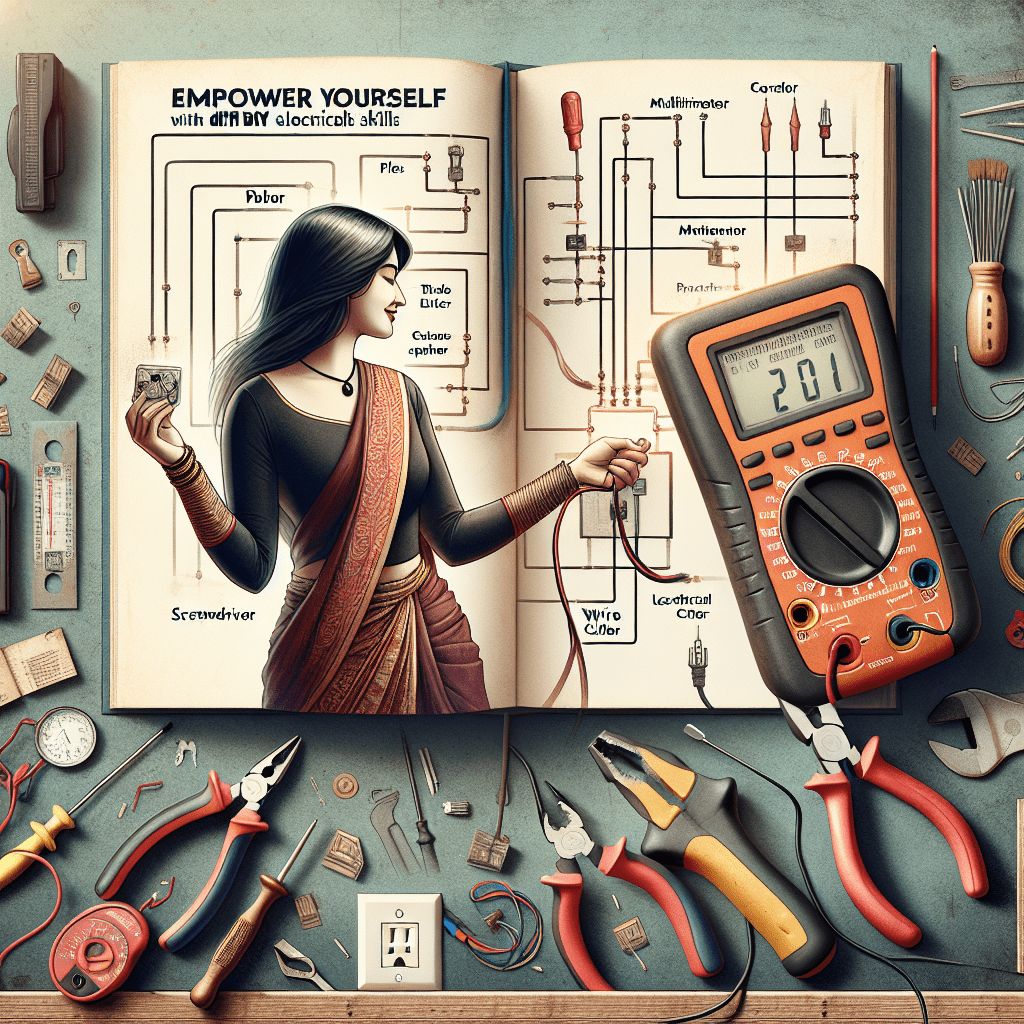Are you looking to take control of your home’s electrical systems? Empowering yourself with DIY electrical skills can save you time and money, while also providing a sense of accomplishment. However, before diving into any electrical project, it is important to have a solid understanding of the basics. This beginner’s guide will help you gain the knowledge you need to tackle simple electrical tasks on your own.
The Basics of Electrical Systems
Before you start any DIY electrical project, it is important to understand the basics of electrical systems. Electricity flows in a circuit, which consists of a power source, a load, and wires connecting the two. The power source (such as a battery or outlet) provides the energy needed to power the load (such as a light bulb or appliance).
Electrical systems are rated in volts (V) for voltage, amps (A) for current, and ohms (Ω) for resistance. It is important to know these ratings when working with electrical components to prevent damage to the system or injury to yourself.
Tools and Equipment
Before starting any electrical project, you will need to have the right tools and equipment on hand. Some essential items include:
- Screwdrivers
- Wire strippers
- Needle-nose pliers
- Voltage tester
- Multimeter
Having the proper tools not only makes the job easier but also ensures that you can work safely and effectively. Make sure to invest in high-quality tools that will last for multiple projects.
Basic Electrical Tasks
Once you have a basic understanding of electrical systems and the right tools, you can start tackling simple electrical tasks in your home. Some beginner-friendly projects include:
- Replacing a light switch
- Installing a ceiling fan
- Replacing an outlet
- Installing a new light fixture
These tasks require basic wiring skills and can typically be completed in a few hours. Remember to always turn off the power at the breaker before starting any electrical work and double-check your work with a voltage tester to ensure safety.
Advanced Skills and Safety
As you gain more experience with DIY electrical projects, you may want to tackle more advanced tasks, such as installing a new circuit or upgrading your panel. These projects require a deeper understanding of electrical systems and safety precautions.
It is important to never work on live circuits and always follow proper safety procedures when working with electricity. Always turn off the power at the breaker, use insulated tools, and wear protective gear to prevent injury.
Conclusion
Empowering yourself with DIY electrical skills can be a rewarding and money-saving endeavor. By understanding the basics of electrical systems, having the right tools, and following safety procedures, you can tackle a variety of electrical projects in your home. Remember to start small with simple tasks and gradually work your way up to more advanced projects.
FAQs
Q: Is it safe for beginners to work on electrical projects?
A: With the right knowledge and precautions, beginners can safely tackle simple electrical tasks. It is important to start small and gradually build your skills before attempting more advanced projects.
Q: Do I need a permit for DIY electrical work?
A: In most areas, electrical work requires a permit to ensure that it is done safely and up to code. Check with your local building department before starting any electrical project to determine if a permit is needed.
Q: How can I learn more about electrical systems?
A: There are many resources available to help you learn about electrical systems, such as online tutorials, books, and classes. Consider taking a basic electrical course to gain a deeper understanding of the subject.
TIP: Always double-check your work with a voltage tester before turning the power back on. This simple step can prevent injury and damage to your electrical system.
#Empower #DIY #Electrical #Skills #Beginners #Guide

